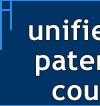InfoSoc Seminar Series
Wednesday 27 November 2019, 15:00, Room W416
Globalisation and the diminishing “regulatory” state has resulted in regulatory gaps that are being filled by alternative forms of “regulated self-regulation”. These include “soft law” enforcement mechanisms involving social or market penalties rather than legal sanctions. Social activists and non-governmental organisations have an increasingly significant role as political lobbyists, campaigners and watchdogs of corporate activity and businesses are themselves contributing to global regulation. The shift to a deliberative approach raises big questions about democratic political authority, legitimacy and accountability while “wicked” societal problems, such as climate change, pollution, poverty, social injustice and inequality, are leading to an enlarged idea of corporate responsibility.
While information is the glue that motivates and binds the participants in the “soft” enforcement mechanisms, online platforms facilitate information dissemination and the harnessing of collective power. This gives rise to two broad concerns, the first relates to the quality of the information itself and the second to the use of “framing” techniques to shape perceptions of social reality and impose corporate responsibility. As regards the former, the prevalence of online news journalism, and the advertising revenue received by the news media from corporate giants, spawns concerns relating to potential conflicts of interest, the subversion and manipulation of news and fake news while the use of metrics and analytics in the newsroom reduces the assessment of “newsworthiness” to a measure of “clickbait”. In relation to the latter, social movements typically construct an image that links the corporation to a “wicked” problem, even if it is not the main culprit, to oblige it to take responsibility. At the same time, companies enjoy extensive financial power and have the capacity to influence markets, the media, the public, politics and the law. While there is a great potential for digital information dissemination to enhance the regulatory capacity of ordinary citizens, there is also great scope for its misuse. Questions about civil society’s value, legitimacy and accountability need to be addressed.
_____________________________________________________________________
Dr Alison Cronin is Senior Lecturer in Law at Bournemouth University
_____________________________________________________________________






